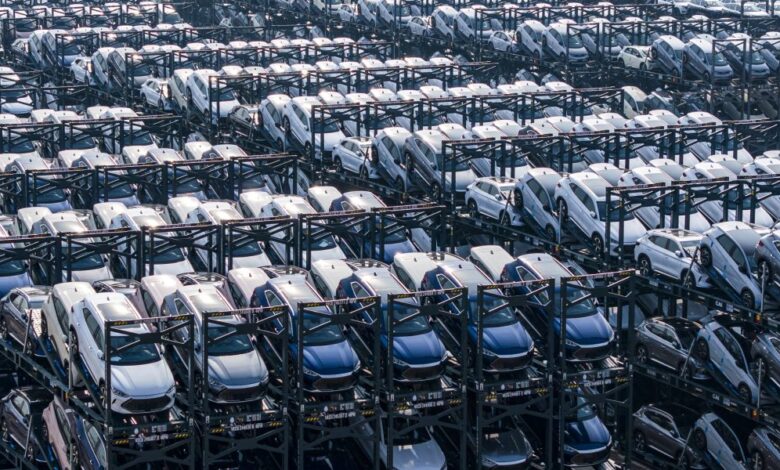China’s Electric Vehicles a Looming Threat to the U.S. Auto Industry

China has solidified its position as a global powerhouse in electric vehicles (EVs), with BYD recently surpassing Tesla in global EV sales. The competitive landscape has prompted Elon Musk to issue a warning, stating that without trade barriers, Chinese carmakers could potentially dominate most other car companies globally, emphasizing their exceptional capabilities.
The Alliance for American Manufacturing has now raised an alarm, releasing a report titled “On a Collision Course: China’s Existential Threat to America’s Auto Industry and its Route Through Mexico.” The report highlights the growing influence of Chinese automakers and their strategic investments in factories worldwide. It specifically notes BYD’s establishment of regional export hubs in Thailand and Hungary.
Of particular concern is the significant investment by Chinese firms in manufacturing plants in Mexico. The report suggests that this strategy enables Chinese companies to exploit the more favorable tariffs under the United States-Mexico-Canada Agreement (USMCA) to gain indirect access to the U.S. market. By circumventing existing policies and tariffs, Chinese EVs could potentially make inroads into the American market.
Currently, EVs made in China face a 25% tariff in the U.S., along with a 2.5% tariff on imported cars. These tariffs have hindered Chinese EVs from gaining substantial traction in the American market. However, the report raises concerns that manufacturing in Mexico might alter this equation, allowing Chinese automakers to tap into the U.S. market more effectively.
U.S. lawmakers have expressed worries about China’s industrial strategy to dominate the global automobile market and the potential entry of Chinese EVs through key trading partners. The report calls for the maintenance or even an increase in existing tariffs on Chinese-made cars to counteract the anticipated influx of inexpensive Chinese vehicles into the U.S. market.
The Alliance for American Manufacturing emphasizes the significant government support that Chinese automakers receive, allowing them to establish themselves as industrial powerhouses controlling various aspects of the electric vehicle value chain. Notably, BYD, supported by Warren Buffett’s Berkshire Hathaway, maintains low costs by owning the entire supply chain for its EV batteries.
Industry leaders, including Ford CEO Jim Farley and GM counterpart Mary Barra, acknowledge the Chinese threat and express openness to collaboration on battery production to address the challenges posed by Chinese EV dominance. The report concludes by stating that the introduction of competitively priced Chinese autos, backed by substantial government support, could potentially pose an existential threat to the U.S. auto sector, making it imperative for the industry to strategize and adapt effectively.


